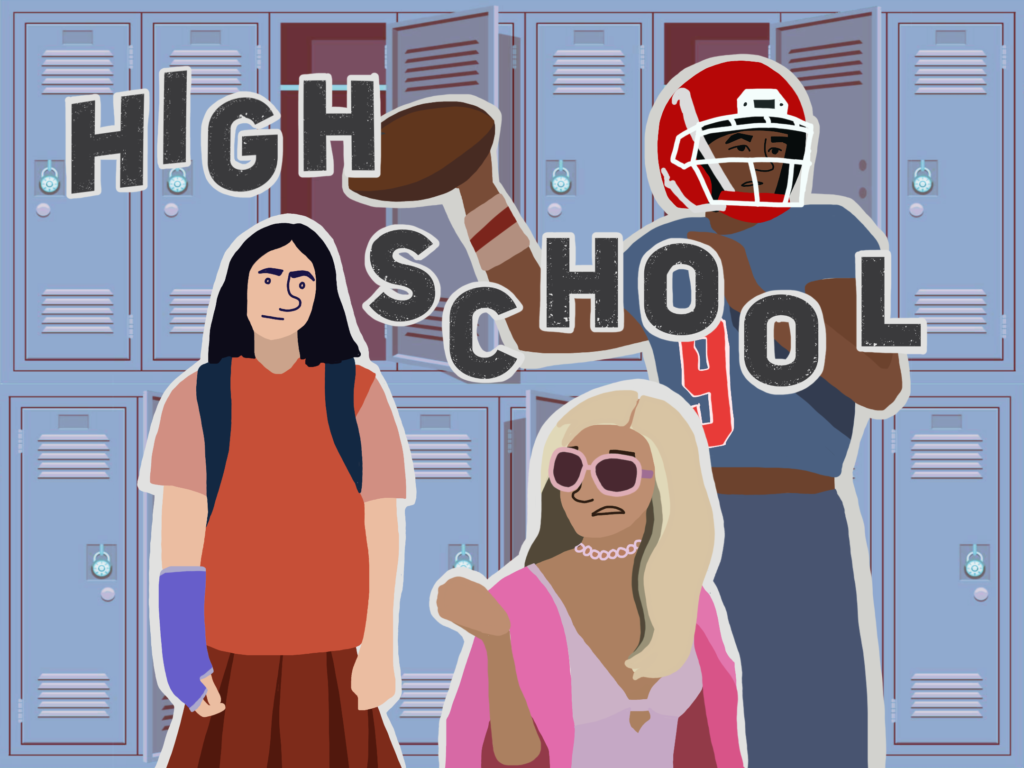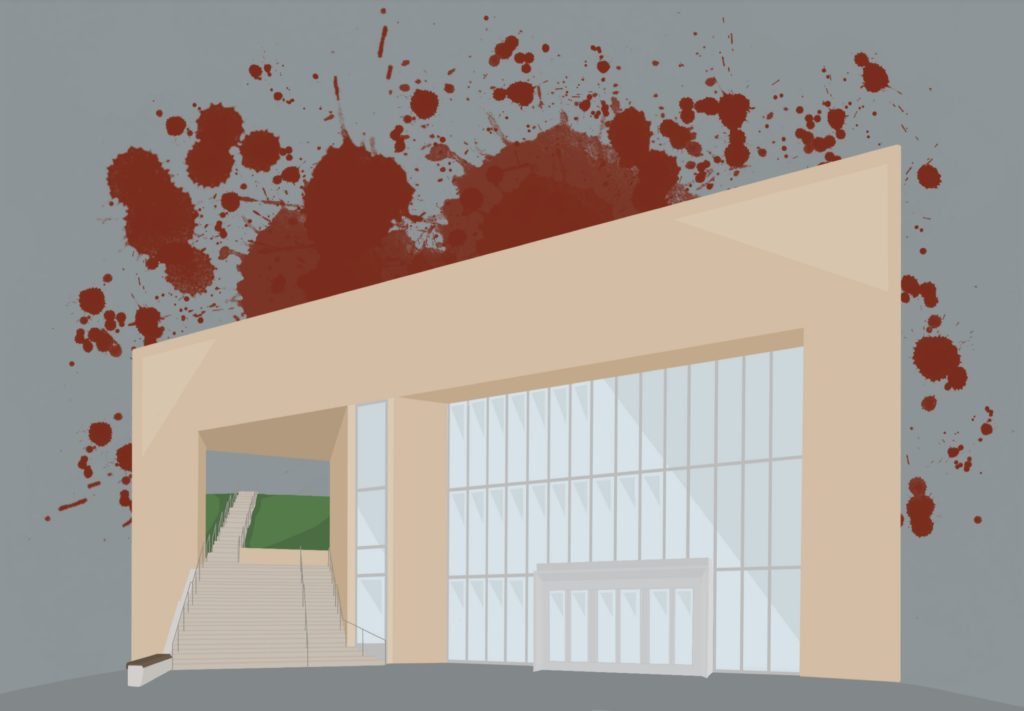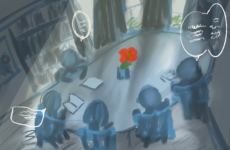
Graphic by Yujin Kim ’23 /The Choate News
Growing up in the UK, I had little exposure to the stereotypical American high school experience. My only understanding of teenage life came from the plots of various Y2K teen rom-coms and Disney classics — basically, I had no realistic idea of what to expect. Coming to Choate, I comfortably assumed that I wouldn’t experience any of the typical high school tropes — the huge football games, exclusive cliques, and negative peer pressure. To my surprise, though the experience differs significantly from that portrayed in the media, the Choate experience and life in these films have surprising parallels.
Growing up with two older sisters, I have watched Mean Girls more times than I can count. Set in Chicago, Mean Girls follows the escapades of three high schoolers attempting to sabotage the group of popular girls. The movie depicts aggressive cliques, gossip, drama, intrigue, and, of course, the notorious queen bee. That last trope is a very common one, and one of the few that I thought would definitely translate to my time at Choate. I’ve realized that, despite the school being reasonably small, the heterogeneity of the community has prevented a single queen bee from emerging as the dictator of all social interaction. While popularity is measured through a subjective lens, I think that here at Choate, it’s not doled out based on superficial qualities. Instead, I think that we use talent, intelligence, and skill to dignify our students. The most ‘popular’ students aren’t necessarily the captains of the Basketball team or the person who can throw the most extravagant parties; instead, it’s the kids with a bunch of leadership positions, the people you see on stage at school meeting, or the people who don’t limit themselves to a single group of friends.
The theme of turbulent relationships is synonymous with the high school experience, leading students to blend into a somewhat homogenous groups. Dictated by impenetrable groups, labeled by single identifiers—think jocks, nerds, and theater kids — in the stereotypical high school setting, people aren’t expected to stray from their presumed crowd. At our school, though aspects of these dynamics are ever-present, it is not to the extent depicted in the high school classics. Take High School Musical, for example. The song “Stick to the Status Quo” is sung to deter a fellow student from pursuing an interest outside of his encompassing “jock” identity. On the contrary, our school motto is “Be Undefinable”—people at Choate are encouraged to go out of their comfort zone, try new things, and make friends with people that, on the surface, they have nothing in common with.
It is this resilient and supportive attitude that I believe to be the most significant difference between Choate and the high schools seen in media. Choate actively encourages students to focus on their academics, creating an environment of determined students always looking for ways to improve themselves. However, through fostering a community of students who push their limits, Choate pressures students in a way that these high school movies do not. In these movies, it’s rare to see students attending classes or doing homework, let alone spending all night trying to perfect their English thesis. This, on top of all the emotions one experiences during adolescence, does make differentiate Choate in this respect.
Though fun to watch from afar, many of the things depicted in these teen movies don’t seem very fun to partake in. Though parallels do exist, Choate differs in the challenges and hurdles students must overcome to achieve their desired goal.




